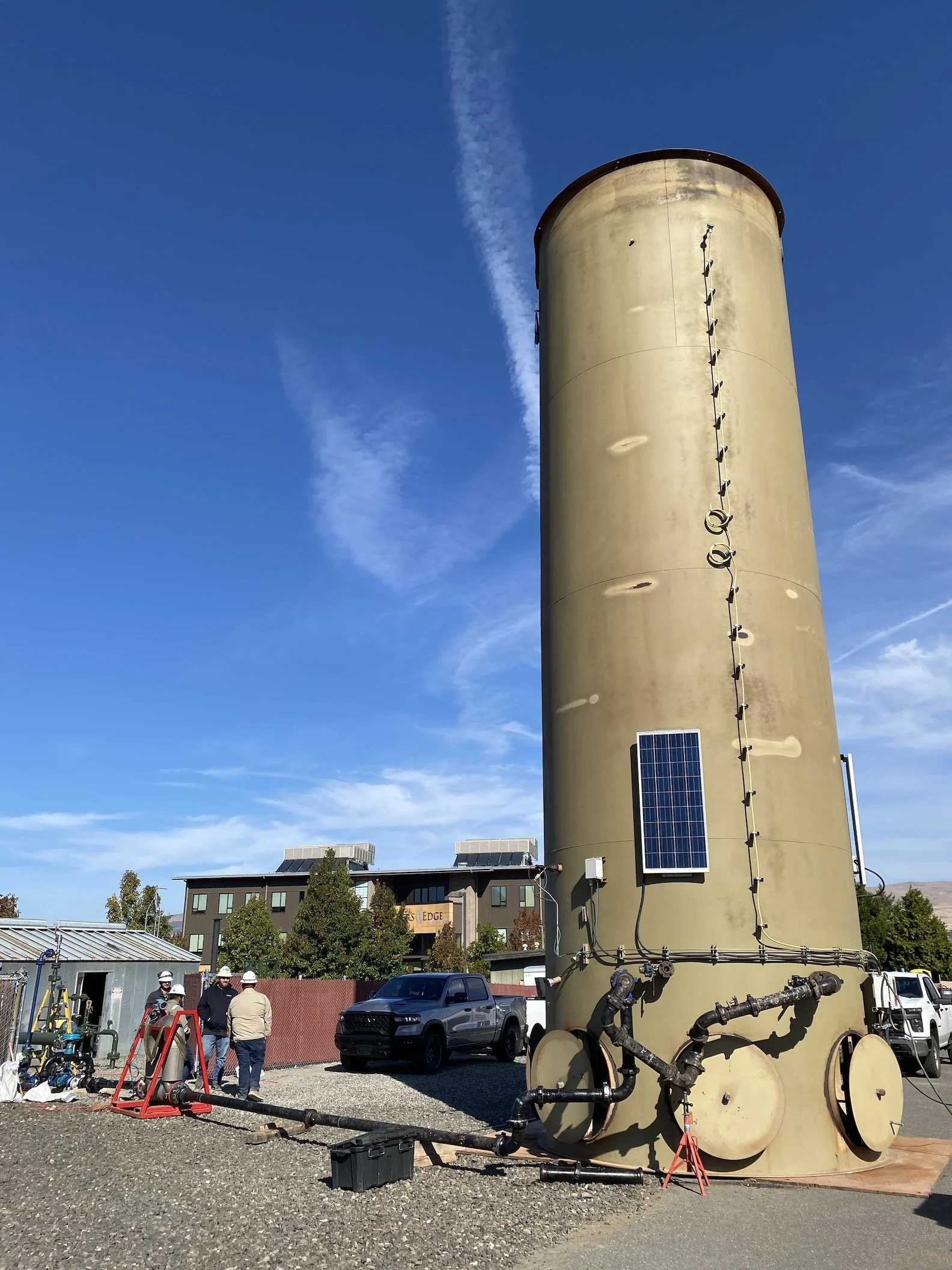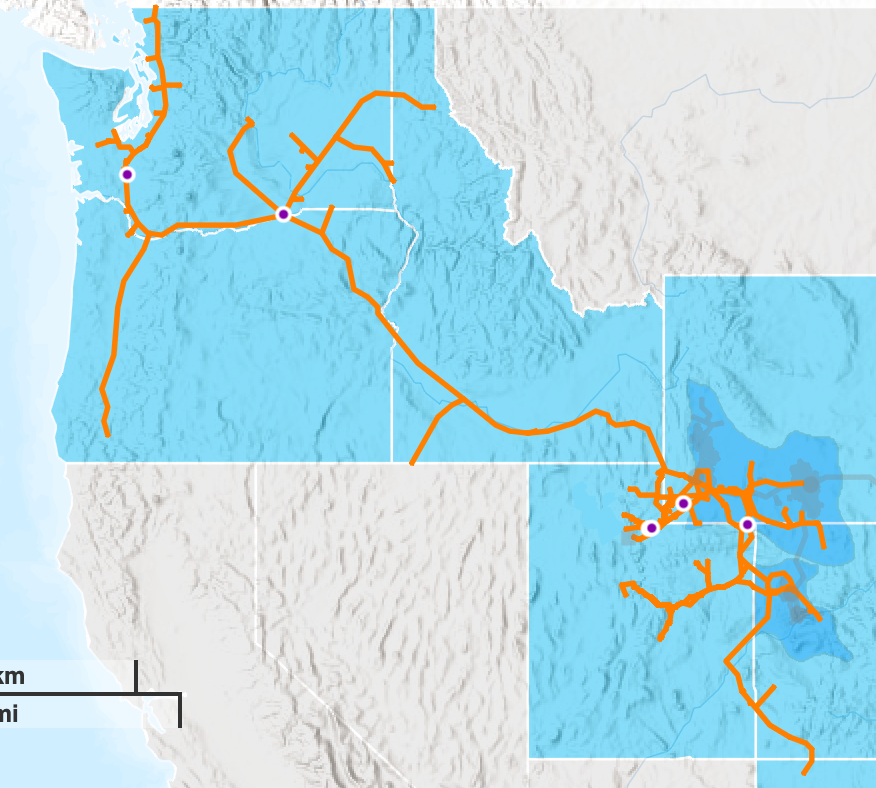Smart Pigging calls for some flare near Water's Edge
By Tom Peterson
The Dalles, Ore., Oct. 3, 2024 — A crew with Williams Northwest Pipeline works on dismantling a concealed flare this morning, Oct. 3, near The Dalles Bridge.
The flare, which burned natural gas inside this forty-foot tower seen above, was necessary the past few days to get the flow of gas to 5 mph, which was necessary to gather inspection data that ensures that the pipe is operating safely and is not a danger to locals.
However, our flow is too slow.
The Dalles, as a whole, does not create enough draw within the pipe, and thus the enclosed flare tower was temporarily erected to burn off additional gas to get the flow of natural gas up to 5 mph.
A smart pig - see illustration below - was used to do an inline inspection. The robotic device collects data on the condition of a pipeline's interior. it uses sensors and probes to detect issues like corrosion, cracks, dents, and metal loss.
Williams is the pipeline company that supplies Northwest Natural Gas in The Dalles, and the company is required to do inspections of its pipeline every seven years to ensure the line’s integrity.
Smart Pig illustration.
Smart Pigs Cover Thousands of Miles
Here is a map showing the location of the Williams Northwest natural gas pipeline.
The Williams Northwest pipeline is a 4,000-mile bi-directional transmission natural gas system crossing the states of Washington, Oregon, Idaho, Wyoming, Utah, and Colorado. It provides access to gas supplies from British Columbia, Alberta, Rocky Mountain, and San Juan Basin.
The average salary for a gas pipeline inspector in the United States is $57,298, with a range of $37,500–$125,000, according to Indeed.com.



